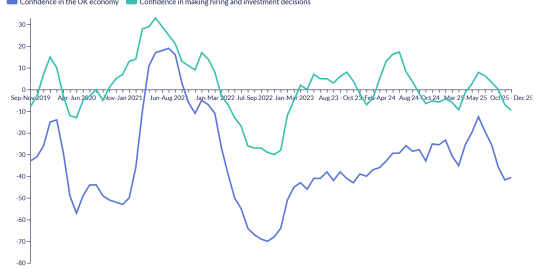Collateral loans, also referred to as secured loans, include mortgages, home equity loans and lines of credit (HELOCs),and auto equity loans.
Getting a Collateral Loan
Have you ever pledged something of value to another to fulfill a promise? Whether it was your car or a deposit on an apartment, by doing so you are placing your money where your mouth is. In this instance, that item is known as collateral - and could allow access to larger loan amounts with lower interest rates.
Collateral loans (also called secured loans) may be easier to qualify for than unsecured loans because you provide collateral as security against risk to reduce the lender and allow them to sell it if you become unable to repay. Thus, certain collateral loans are available even to people with poor credit scores. You can click the link: https://www.forbes.com/advisor/credit-score/what-is-a-bad-credit-score/ for more information on what constitutes a poor credit score.
Lenders typically require you to provide collateral when taking out a secured loan, such as your house, car, or savings account. Your lender may accept different assets as collateral depending on what kind of loan it is; for instance, a mortgage requires backing with either your house or savings account while personal loans could take either as security.
To determine your eligibility for a collateral loan, it is a good idea to prequalify with several lenders. Prequalification often does not affect your credit score and allows you to compare interest rates, terms, and other variables across offers.
Once you have identified a lender that accepts your preferred collateral, it is essential that you understand how the process of loan establishment works.
Your first step should likely involve signing and submitting an application; once approved by a lender, funds will then be transferred directly into your account. The timeframe may differ depending on lender/asset combination but ensure you have a plan in place to repay your loan on schedule as failure to do so could negatively impact your credit ratings.
Collateral Loan Rates
Mortgages and auto loans are among the most frequently taken out collateral loans; with one, your property becomes collateral and with another, a title must be given over as security for repayment. There are other collateral loans that may help finance large purchases or build your credit as well.
Secured personal loans and passbook loans are types of collateral loan products that allow borrowers to borrow against funds in their bank account or certificate of deposit (CD). They are often the perfect solution when an unexpected financial emergency strikes without having to drain savings accounts or incur early-withdrawal penalties for cashing out a CD before it matures.
Collateral loans provide more access to larger loan amounts than their unsecured counterparts, as lenders feel more at ease lending money to borrowers with poor credit if they know that in case of nonpayment, they can repossess or sell an asset as security for repayment.
However, collateral loans typically require more paperwork and a longer approval process than unsecured loans because lenders must appraise the asset you put up as collateral - this may take 30 days or longer!
Before applying for a collateral loan, carefully weigh all the benefits and drawbacks before making your decision. Make sure you understand any associated risks, and that it fits within your specific situation.
Collateral Loan Terms
As for borrowers, collateral loans could provide lower interest rates than an unsecured loan would offer and could even result in larger loan amounts as lenders place less emphasis on credit histories and more emphasis on reliable repayment promises. Collateral loans may prove particularly useful for borrowers with poor or nonexistent credit as well as those without steady income sources.
Most types of personal loans can be secured with collateral, although the specific terms will depend on both the lender and the type of asset used as collateral. Mortgages often use home equity or vehicle title as security. Banks and credit unions are common sources for collateral loans; however, it is always wise to research all your options prior to selecting one; some have better reputations than others and it is important that payments are reported back to major credit bureaus for best results.
If you decide to take out a collateral loan, lenders will likely require you to complete a formal application and present proof of assets as collateral for their evaluation. Once evaluated by lenders, your assets may be judged as to whether or not they cover enough of the cost of your loan. Some types of these loans are processed more quickly than others with funds arriving as soon as the following day.
Businesses can also secure collateral loans by offering up non-sellable stock or future invoices and orders as collateral loans to secure funds when cash flow becomes an issue, and thus avoid selling their most prized assets when money becomes necessary.
Collateral Loans for Bad Credit
Collateral assets may include securities like stocks or mutual funds, property, equipment, machinery, or inventory - even future earnings - and an initial cash deposit may be required to cover potential losses should the value of collateral decline over time.
Before deciding on a collateral loan, it is essential to check your credit score and research the requirements of each lender.
Most lenders only accept applicants with excellent or good credit scores; however, there may be lenders more flexible. Look for one that allows pre-qualifying without negatively affecting your score, then compare offers until you find one suitable to your needs. You can click here for an online comparison tool that can help you find the right loan for your situation. It is especially important to compare rates before committing to a loan agreement.
Collateral can help you secure personal or home equity loans, auto loans, or secured business loans with shorter repayment periods and the risk of property seizure should the loan default.
The Benefits of Refinancing
Homeowners can use refinancing as a powerful tool to achieve personal or financial goals.
Most homeowners refinance to reduce mortgage costs by getting a lower interest rate and cutting the total interest paid over the life of the loan. Refinancing may also make sense if current rates are lower than what was available when they initially took out a mortgage or your income has increased since taking out your initial mortgage loan.
Some individuals choose to adjust their loan term by either shortening or lengthening it, to reduce monthly payments or pay off their mortgage faster. But remember, by extending it, the total interest expense will increase because your debt will last for a longer timeframe.
At times, some homeowners refinance to gain cash out of their homes. This can be especially useful when additional expenses such as home improvement projects or unexpected costs arise - or for taking an unexpected trip abroad.
A cash-out refinance allows a borrower to access equity by taking out a line of credit that draws upon the difference between what they still owe on their mortgage and its current value; most lenders may cap how much you can pull out at 80% of that current value - so keep that limit in mind when considering this option!
Refinancing comes with some upfront costs that could take years to recoup with savings from lower interest rates or shorter loan terms. Refinancing may not be worth your while if you plan on staying in your home for only a short time and prepayment penalties could eat into any savings generated from refinancing again early or refinancing again.
For savvy borrowers, refinancing with collateral can be a great way to save money over the term of your loan agreement. It is particularly important to research the terms available to you and factor in any additional fees or penalties in order to determine whether it will be worth your while.





